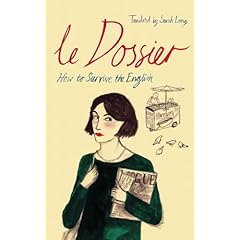--The blurb--
"The valet Jeeves resigns over Bertie's dedicated but somewhat untuneful
playing of the banjo. In high dudgeon, Bertie disappears to the country
as a guest of his chum Chuffy - only to find his peace shattered by the
arrival of his ex-fiancee Pauline Stoker, her formidable father and the
eminent loony-doctor Sir Roderick Glossop."
--The review--
As with any other country, stereotypes about Britain abound: afternoon tea. Strawberries and cream. The Queen. Wimbledon. Oxbridge. Butlers. Posh accents. Red buses and telephone boxes. Public schoolboys. The English breakfast. Black cabs. Country estates. And so on. It would be absurd to suggest that Brits indulge in all of these things every day - but equally, most stereotypes arise from the grain of truth that lurks within them. Thank You, Jeeves!- the first full-length novel in PG Wodehouse's Jeeves series - exploits many of these stereotypes to their fullest in the form of a light-hearted romp that becomes more and more farcical at every turn.
The farce is at times difficult to believe, with the events immediately preceding the ending, in particular, seeming rushed, and thrown together purely to bring the novel to a close, rather than providing intrinsic value themselves. However, it's worth remembering at this point the function of farce: the objective of the events is to place characters in untoward situations, and to observe their reactions as they unfold. While the events can be funny, it is the characters who serve even further as the object of the comedy: they are merely pawns in the writer's game, and thus a source of entertainment for us. To this end, Wodehouse deploys the characters and events extremely well.
Furthermore, there are other sources of pleasure in Thank You, Jeeves! beyond the characters' antics. Politically incorrect plot twists, archaic turns of phrase and the sheer extravagance of the setup just involved in having a butler provides plenty of nostalgia for Brits - even if that is a throwback to a time that never really existed. For foreign readers, it gives them a chance to indulge in the classic British stereotypes - even if they know that these stereotypes are not completely true representations of Brits and British life as it is today. Equally, it's possible that those same stereotypes had a cathartic purpose for Wodehouse, who in reality spent most of his life in other countries. Did the deployment of these stereotypes help to remind him of, and even construct for him, an exaggerated version of his homeland?
To this end, one can wonder if the author intended the events and characters in Thank You, Jeeves! to be sincere or satirical. Given Wodehouse's public-school background and wealthy parents, it's entirely possible that he would have encountered people like these - hence, perhaps, the sharply-drawn characters. However, these same characteristics, and their roots in stereotype, can seem satirical to others - and this, too, is a source of humour, alongside the acerbic one-liners and fast-paced dialogue. The happy ending that Wodehouse produces, which links neatly with the apparently non-sequitur beginning, rounds off the narrative arc beautifully, and concludes this amusing and stress-free read. Off the back of this first Jeeves novel, the entire collection is to be recommended for light relief all year round - and not just in the summer when we all have more time to read - naturally alongside a pot of tea.
other works by PG Wodehouse
A full list of PG Wodehouse's works can be found on Wikipedia. The Jeeves canon consists of 35 short stories and 11 novels.
First three Chapters....
16 years ago











